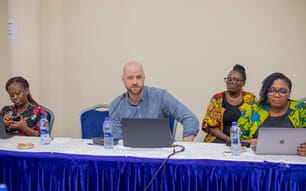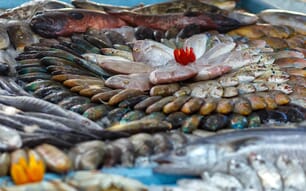She met FAO Director-General Mr Graziano da Silva and the staff of the organisation.
More specifically, she discussed cooperation issues between FAO and the European Union in the fight against IUU (Illegal, Unreported, Unregulated) fishing, port state measures, joint actions in the Mediterranean and Black Sea (including FAO projects supported by the EU) and aquaculture.
Commissioner Damanaki also met the General Fisheries Commission for the Mediterranean (GFCM) Executive Secretary Abdellah Srour and Professor Stefano Cataudella, Chair of the GFCM.
Maria Damanaki concluded her visit to Rome with a meeting with Italian Minister of Agriculture, Food and Forestry Mr Mario Catania. They discussed the use of driftnets and the on-going reform of the EU's Common Fisheries Policy, including the financial resources from the European Maritime and Fisheries Fund.
Commissioner Damanaki commented on the meeting and the issue of driftnets:
"The use of driftnets to catch certain species leads can be very damaging. Therefore fishing with such gear is regulated both at EU and national level. I welcome the real progress made by Italy under the leadership of Minister Catania. Recent verifications conducted by the Italian authorities in close cooperation with the European Commission have not revealed new illegal driftnet activities. However, this does not mean that the problem it totally eradicated. Therefore, we reached agreement with M. Catania to start work immediately on the development of an Action Plan to ensure compliance and guarantee that good progress so far will be secure and in order to be able to take a final decision on the case," she said.
Italian implementing rules regarding driftnets are now stricter and simpler to apply ("one net rule"). Italian authorities were successful in closing loopholes in the legislation and in making sanctions more effective and dissuasive. However, structural weaknesses of the control system persist. The Commission stands ready to continue to work closely with Italian authorities to consolidate these positive developments.
EU Commissioner Discusses Driftnets, International Fisheries, GFCM Reform
ITALY - EU Fisheries Commissioner Maria Damanaki was in Rome, on 8 November 2012, for a series of meetings with high-level personalities and organisations on key fisheries issues.
by Lucy Towers


